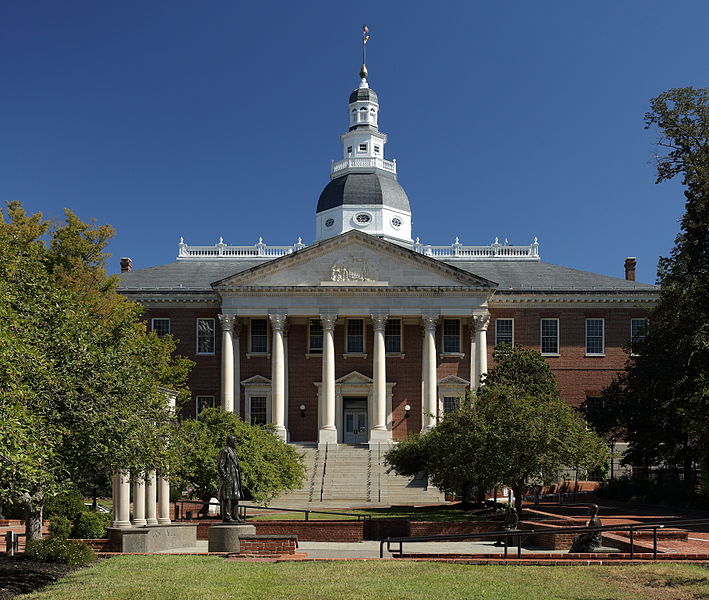A bill that would mandate presidential candidates provide tax returns to appear on Maryland’s ballot is making its way through the Maryland General Assembly.
If passed, it would require a candidate’s tax returns from the past five years be made public, codifying a practice that took place under 14 previous presidents and presidential candidates, said the bill’s primary sponsor in the Senate, state Sen. Paul Pinsky (D-Prince George’s), at the bill’s hearing in the House of Delegates Ways and Means Committee on March 20.
While this was a common practice for years, then-candidate Donald Trump did not release his tax returns in the lead-up to the 2016 election. He was the first candidate since Gerald Ford not to do so, according to Politifact.
Jake Polce, president of the University of Maryland’s College Democrats chapter, said he liked the idea of the bill and called it a “piece of the puzzle” in making elections more transparent and democratic.
[Read more: Gov. Larry Hogan proposes $125 million to improve school safety in Maryland]
“Any time you’re trying to make elections more transparent and you’re trying to provide citizens with as much information as possible to make educated decisions about who they want to lead their county, state or country, that’s always a good thing,” the senior government and politics major said.
Victoria Airapetian, a freshman communication and government and politics major, agreed.
“It is our business to know who our elected leader is and how they’re spending their money and what they’re really doing with their money,” she said. “The public would like to see this from any president.”
Del. James Tarlau (D-Prince George’s), the bill’s primary sponsor in the House, said that voters deserve to see presidential candidates’ tax returns.
“For four decades, tax returns have given voters an important window into the financial holdings and the potential conflicts of interest of presidential candidates,” Tarlau said.
[Read more: Maryland legislators proposed several bills on gun violence following Florida shooting]
Steven Clark, the president of the University of Maryland College Republicans chapter, called the bill “a clear example of pure partisan legislation” aimed at Trump.
“The Maryland General Assembly is supposed to be working on the problems we have here in Maryland, not focused on taking partisan shots at the President,” Clark wrote in an email.
Polce said he worried that leaving Trump off the ballot in 2020 might dissuade Democratic voters from going to the polls.
“If you keep the president off the ballot in Maryland, so there’s only a Democrat on the ballot, will that lower turnout among Democrats if they know the [Democratic candidate] is automatically going to win?” Polce said. “Do we see a trickle-down effect hurting down-ballot Democrats who might need that presidential bump in turnout to get elected?”
Similar tax return legislation has been vetoed by governors in states including New Jersey and California, who called into question the bill’s constitutionality.
The bill does not alter the constitutional requirements to become president, Tarlau said. Instead, it “imposes a minimally burdensome disclosure,” the delegate said, adding “the bill impacts each candidate equally.”
Junior physiology and neurobiology major Nithin Venkatraman said he doubts the bill will pass, but added, “I don’t think it’s ridiculous to codify some of these norms that protect our Constitution and protect our democracy.”
The bill passed the Senate with a 28-17 vote on March 5. A vote on the bill in the House of Delegates has not been announced.
“I encourage President Trump and other candidates for president to be as transparent as possible,” Clark said, “but it should not be a requirement to be placed on the ballot.”



